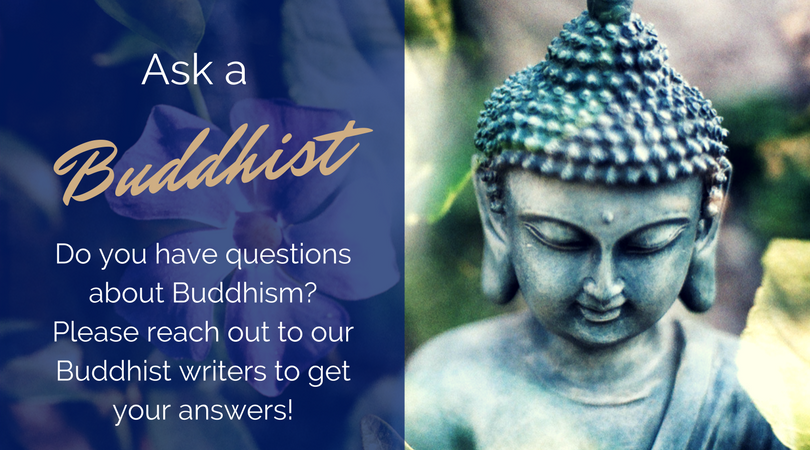Ask A Buddhist: Practical Ways to Live Faith In Daily Life
What do you want to ask a Buddhist? Fill out the form below or submit your question online.
What Are Some Practical Ways We Can Live Our Faith in Daily Life?
Thanks for your question. It is one of the most important questions a person called to a spiritual practice can ask. The answer might differ slightly depending on which faith tradition you follow. Here’s my reflection on your question from a Buddhist framework.
The ethical foundation of Buddhist practice is to benefit others as much as we can and if we can’t do that, at least to not harm them. Living an ethical life where we refrain from harming others with our body and speech is the first step in practicing our faith in everyday life.
Physical and Verbal Actions
There are three physical actions we do our best to refrain from doing. The first is to refrain from killing any living being including animals and insects. The second is to avoid taking what has not been freely given. This includes not cheating on taxes, not paying bills, taking things at work, or using the company’s time for personal activities like following social media. Instead, we respect others’ possessions, return things we borrow, pay what we owe, and use our time at work for what we’re paid to do. The third of the physical actions is to refrain from unwise and unkind sexual conduct. In other words, if we are in a relationship we don’t have sexual relations with another person. Even if we are single, we don’t go with someone who is in a relationship. We refrain from using people for our own pleasure without considering their feelings and needs. This includes having unsafe sex. Pornography could also be included.
When it comes to verbal actions, we try to refrain from lying, which includes exaggerating or covering up the truth; using our speech to cause disharmony or prevent people from reconciling; speaking harshly to insult or humiliate someone; and engaging in idle talk where our speech serves no real purpose.
Since much of our life is in relationship to others, these ethical guidelines serve as a bridge to connect us with people in a way that will promote trust and respect. We can’t control other peoples’ actions, but we can practice refraining from harming others.
Growing Good Qualities
When we begin to rein in our harmful actions, there is more space in our minds to be of benefit and grow our own good qualities like kindness, generosity, compassion, and fortitude. We direct our motivation each day to avoid harming anyone, including ourselves, to be kind and to benefit ourselves and others as best as we can. That motivation sets a positive and uplifting tone for the day. And when difficulties arise, we can recall these motivations as a guide for how we want to respond.
To achieve this requires that we take some quiet time each day to remind ourselves of these wholesome intentions and to nourish these beneficial ways of being in the world. That not only brings us a sense of peace and well-being but will benefit those around us. Over time, the long-term result is that our actions of body and speech, and the wise and kind intentions that direct them, will be the causes for us to realize our true potential as human beings. For Buddhists, these actions and intentions help create the causes to realize our full potential, to become a fully awakened buddha in the future.










